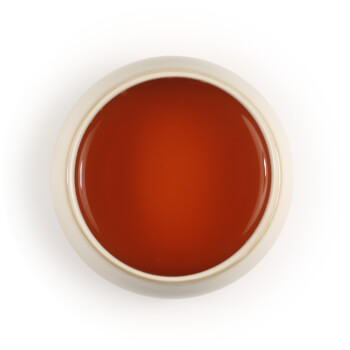97
jin kong que
Based on 157 reviews
sample
April 2025 harvest
$4
1.5oz
april 2025 harvest
$12
sample
May 2024 harvest
Origin
Yunnan, China
Farmer
Zhao Ji Lin
Elevation
1500m
Infusions
3

Jin Kong Que is a remarkable tea handmade in the Yunnan Province of China. It has a rare ability to balance bold flavor without giving off bitterness. Its name, which translates to Golden Peacock, is as flashy as its namesake with fairly large, very golden leaves and leaf buds. The liquor does not disappoint as it boasts intricate notes of honey, toastiness, cocoa, and roasted sweet potato.
About the leaves:
Grown at 1400-1600 meters above sea level the Jin Kong Que leaves were harvest by hand in April from 15-year-old trees. The one bud, one leaf configuration is then machine fired and roasted for about an hour at 15-120 degrees celsius.
About the leaves:
Grown at 1400-1600 meters above sea level the Jin Kong Que leaves were harvest by hand in April from 15-year-old trees. The one bud, one leaf configuration is then machine fired and roasted for about an hour at 15-120 degrees celsius.
This tea contains a high level of caffeine | Steep at 212° for 2-3 minutes.
Customer Reviews (157)
Fresh From Origin
Jin Kong Que gets its namesake from the Dai people who reside in the Yunnan Province. They are known for growing and picking tea in this region and adore the peacock as a symbol of fortune and luck.According to historic documents, Yunnan Province has been domesticating the wild tea plant for around two thousand years. Its location in southwest China (Yunnan's terrain is quite mountainous with heavy rainfall) that combined with its fertile soil makes it an ideal location for tea trees. It is there where the Three Ancient Tea Kings reside. Regarded as living foils, these hundreds-year-old trees stand to this day.
Free Sample Offer
If you buy this tea from another vendor, we invite you to try a free sample. Simply email a receipt showing an earlier purchase of the "jin kong que" tea to masters@adagio.com and we'll mail you a free sample of this tea to compare. We're convinced that you'll be impressed with its quality and value.Zhao Ji Lin

How long have you been growing tea and what got your started?
My parents were tea farmers when I was a small boy. They brought me to the mountain when I was very young. So I loved the mountain and their job. I started to help them when I was 10. On my way to school we picked up the tea leaves every morning. As a result, I began to work when I was 18 after high school.
Can you describe a typical day out in the field?
Si Mao is a mountain area. I have to climb mountains to pick up the tea leaves. I normally go out around 7am in the morning and finish at noon. Then I will send the tea leaves to the primary factory.
What is your favorite part of growing tea?
I love mountains. I began to follow my parents to climb the mountains when I was very young. When I pick up tea leaves I am always very happy. I love the fresh smell.
Conversely, what is the hardest part of your job?
I am 53 now and I do not want to stop, but my knees are not going very well after so many years of climbing. Sometimes I am in pain for that. I do not know what I can do if I lost this job.
Are there any tips you can give on how to best brew your tea?
Suggest to use gai wan and small cups to brew the wonderful jin kong que. When using the gai wan and tea set, you can feel very relax and enjoy everything about the teas, such as tea leaves, tea smell, tea taste and tea liquor etc.
